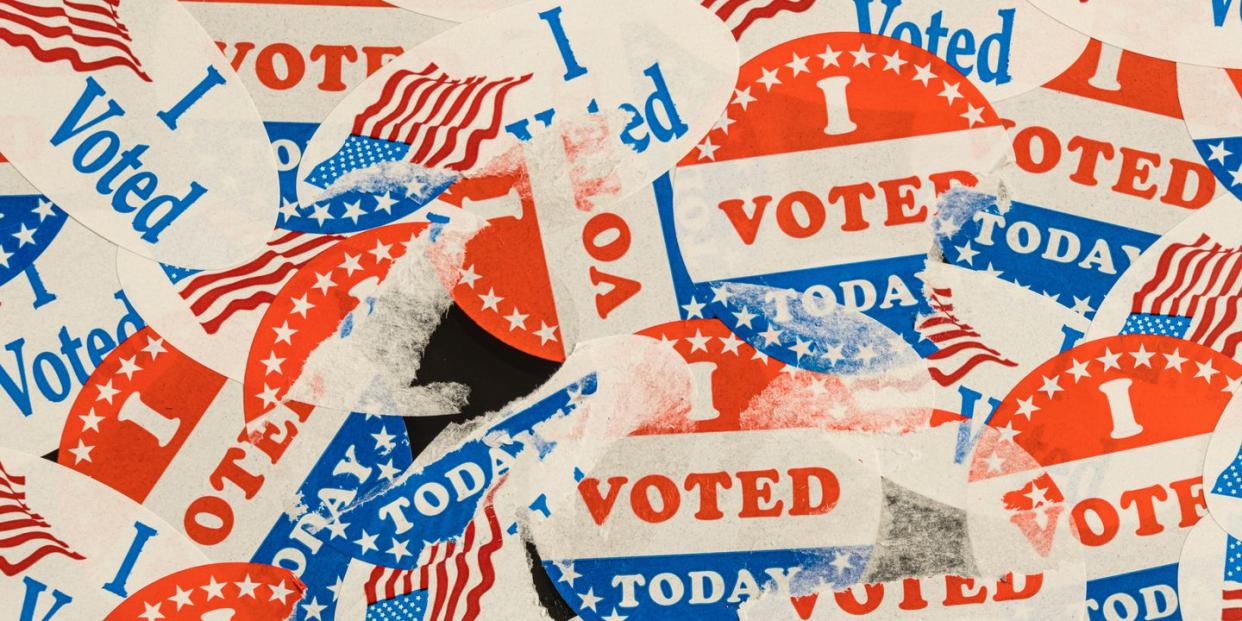When Will We Know the Results of the 2020 Election?

In recent decades, aside from a few notable exceptions, Americans have come to expect speedy election results, with TV news anchors calling the results live on the air just hours after the polls close. That was not the case this time.
Below, why the votes are taking longer to tally this year, and when a winner might finally be announced.
The newscaster calls on election night have always been a little misleading.
Although historically data experts have been able to project the winner in each state, and then add up those forecasted electoral votes to "call" the winner, national elections have always been a weeks-long process. It always takes time for states to ensure that every vote is counted and to certify their elections.
"From a legal perspective, there are no results on Election Night, and there never have been," Ohio State law professor Edward Foley recently explained in the Atlantic. "The only thing that has ever existed on Election Night are projected results that the media has helpfully provided to its audiences."
There's been a massive increase in mail-in voting.
Due to the ongoing coronavirus pandemic, voters are opting to mail their ballots rather than casting them in-person, in the hopes of minimizing possible exposure to the virus. This year's primaries offered a preview of this shift: 50.3% of votes were cast by mail, as opposed to 27.4% in the 2018 midterms, according to Pew.
Mail-in votes require more time to process—an effect that may be particularly pronounced in states that have only recently opened up absentee voting due to the pandemic. In addition, in some places, including crucial swing states like Pennsylvania, mail ballots can't be counted until November 3; and many states will accept ballots after election if they're postmarked on Election Day, lengthening the time required to get a final count.
The deadline for ballot arrival varies widely, from November 2 (yes, Louisiana requires ballots to arrive before Election Day), to November 20 (that's Washington with the most generous timeline). Additionally, about 30 states allow voters to fix errors on mail-in ballots that would otherwise lead to their votes being thrown out, and some require those who requested mail ballots but voted in-person to cast provisional ballots, which are reviewed on, or often after, Election Day.
According to the U.S. Elections Project, as of the afternoon of November 3, over 65 million mail ballots had been returned.
Several key swing states have yet to report full tallies.
As of Friday morning, Americans are still waiting to learn the results of close races in Georgia, Pennsylvania, Nevada, and Arizona, even as Biden pulled ahead by narrow margins in Georgia and Pennsylvania, and maintained his leads in Arizona and Nevada.
Close calls could lead to legal battles, further delaying final counts.
As the country infamously saw during the 2000 election, when the margin is narrow enough, recounts can be called, which can lead to complicated legal battles where things can get messy.
Before Election Day, the judicial branch had already been involved in this year's electoral process: the Supreme Court issued decisions that affected how the election will proceed in certain states, including in battleground states like Pennsylvania and Florida. (Largely, SCOTUS deferred to state courts' rulings in these cases.)
Now, in the days after the polls closed on November 3, the Trump campaign has filed lawsuits and procedural challenges in an effort to slow or halt vote counts in key states, including Pennsylvania, Michigan, Georgia, and Nevada. Legal experts believe the campaign's complaints are largely baseless, and judges in Michigan and Georgia have already ruled against its legal challenges.
"It does seem like they're throwing spaghetti at the wall to see what sticks, which I tell my law students is never a good strategy," Joshua Douglas, a University of Kentucky professor and election law expert, told NPR.
In a misinformation-filled address from the White House on Thursday night, Trump himself alleged, without evidence, that the other side was trying to "steal" and "rig" the election. He has also tweeted "STOP THE FRAUD!" and—in reference to votes counted after November 3 that he has baselessly claimed are "illegal"—that the "U.S. Supreme Court should decide!" (Twitter put a label on these tweets, warning that they contained "disputed" and "misleading" information.)
If the election ultimately ends up before the Supreme Court, as it did in Bush v. Gore, it could be particularly contentious. The court's newest Justice, Amy Coney Barrett, was just confirmed by Senate Republicans in a rushed process, after over 60 million voters had already begun casting their ballots—and her highly conservative jurisprudence and ties to Trump, as his hand-picked nominee, could cause Democrats to doubt her impartiality.
Trump has yet to commit to accepting the election results.
Peaceful transfers of power have long been a hallmark and point of pride for the U.S., but in advance of the election, the current President repeatedly refrained from declaring that he would accept the outcome of the 2020 race.
Now, he is making good on his threat. Not only has his campaign attempted to slow or halt vote counts in swing states by filing lawsuits and legal complaints, but, per CNN, Trump has told allies in recent days that he doesn't plan to concede, even if his campaign no longer has a path to victory in the electoral college.
As the election has yet to be called by major news outlets, it's not yet clear how Trump will proceed if Biden is widely declared the winner.
You Might Also Like
